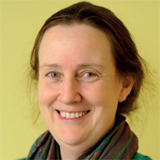Liam Farrell, until recently Crossmaglen’s GP, has made me weep. On Twitter he posted:
@drlfarrell. “I practised on the Irish border for 20 years, saw many of your young soldiers lying dead on the cold ground; if it starts again Rees-Mogg or Johnson or their children won’t be signing up to fight. Always someone else’s children to be killed.”
On my desk is a tome, my father’s copy of “Lost Lives“, a sensation when it was published and the inspiration for an extraordinary film. It tells the stories of all the men, women, and children who died as a result of Northern Ireland’s Troubles from 1966 onwards. All of them, without fear or favour. I still use that book. When I met an ENT surgeon in Galway, we worked out that our parent doctors operated together in Belfast. His brother was shot on the way to school in Belfast. In the class above me one girl’s father was murdered for daring to be a Catholic judge, and another girl spent years in jail for bombing a hotel and was eventually killed by British forces as she planned to blow up a Remembrance Day parade in Gibraltar. In such a small place—well under 2 million people—the Troubles were personal. We knew victims, terrorists, emigres. We sat beside them in class, saw them in town, knew their relatives. We knew their names.
It’s hard to explain to someone who did not grow up during the Troubles what they were like. As a teenager it seemed normal to hear an explosion and look up to see where the plume of smoke was coming from; dodge stones because my school uniform proclaimed my religion; think it an act of bravery to paint out alternating sectarian slogans at the end of my street. I knew my father was on a “list” of prominent Catholics, at a time when bodies were regularly turning up dismembered on a notorious side road in Belfast as part of tit-for-tat killings. By prominent I mean working as a senior public health doctor, so nothing that special. He had breached the dyke as the first ever Catholic appointee, having “passed” with a neutral name and a Scottish accent. He faced bullying for years as a result, but when he wrote to the BMA asking for help, he was told the BMA “did not deal with that sort of thing.” It nearly broke him. When I stood for election as chair of the BMA’s Public Health Conference, I stood in his name.
It has taken years to unpick the consequences of the conflict on social policy in Northern Ireland. The lack of debate, the failure to implement change (we’ve only just got abortion and equal marriage across the line and that was by default not design) and the mollycoddling of Ulster politicians to suit other geographical jurisdictions (the Democratic Unionist Party deal with the Conservative comes to mind)—all of this means that Northern Ireland never sorted out its own problems. Attitudes grew nasty and insular during those years, hatred of others was encouraged, efforts at reform were often stifled. Reactionary forces flourish in an atmosphere of violence, because criminality thrives in a lawless state or where armies are used to instil law and order. Because bigotry spreads like a mycelium, hidden. It hides darker issues.
The rising tide of nationalism dismays me. I want, I have always wanted to be part of something bigger than just my “own” people. I came to England to find opportunity, acceptance and peace, and I found it, but now I am worried. These are hard won qualities to find in any society and they are easily lost. If you think the problems around the border in Northern Ireland are a distant problem and not about you, think again.
The trailer for Lost Lives says “Please, let our next generation live normal lives, tell them of our mistakes and admit to them our regrets.” Think of all the young people who died trying to sort the mess out in Northern Ireland—”ours” and “yours.” Think of how porous our world is—the Irish Border is only just across the sea, and you can get there in a couple of hours on a plane, it’s your backyard too. Above all, think of Northern Ireland as a lesson in what happens when you side with your own narrow tribe. I know how bad that can get. What I am trying to say is, my memories and my imagination run deep. I hope yours do too.
The Gordian knot of Brexit is tightening. We need to stop it anyway we can. Because if violence erupts again in Ireland, you know damn well who will put together the broken bodies. Us. The doctors, nurses, paramedics, physios, rehabilitation specialists… It will fall to us.
 Mary E Black is a public health doctor. She is on Twitter @DrMaryBlack
Mary E Black is a public health doctor. She is on Twitter @DrMaryBlack
Competing interests: I have no relevant interests to declare.
